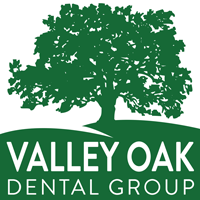Valley Oak Dental Group
Don’t Let the Gum Disease Ruin Your Smile
Did you know that as many as four out of five people have periodontal disease without even knowing it? This disease, while not serious in its early stages, can spell huge problems for your mouth if it continues to spread. Luckily, when you come to Valley Oak Dental Group for periodontal care in Manteca, CA, you don’t have to worry about this condition. We will help you overcome it.
Since 1979, our team of dentists and hygienists have served patients from across San Joaquin County. We don’t just provide exceptional service—we also want to educate our patients. Read on to learn more about gum disease and periodontics in our Manteca, CA practice.
The Basics of Periodontal Disease
When your dentist says “periodontal,” he or she refers to the tissue “around the tooth,” or the gums. Periodontal disease occurs when the gums (and the bones that support them) come under attack.
But what attacks them?
The same bacteria that causes cavities also leads to periodontal disease. That bacteria lives in plaque—a sticky mixture of saliva, bacteria, and the food debris the bacteria feed on. As the bacteria eat the debris around them, they metabolize acid as a result, and that acid eats through enamel, gum tissue, and more. The situation becomes even worse when the plaque hardens and turns to tartar (calculus).
The Signs and Symptoms
You’ll know you have periodontal disease if you notice any of the following:
- Red, swollen, and bleeding gums—bleeding may occur after brushing or flossing
- Gum discomfort, pain, and tenderness
- New spaces between teeth or shifted teeth
- Loose teeth
- Receding gums
- Recurring or constant bad breath
- Pus
- Tooth loss
You will not experience tooth loss until periodontal disease reaches its advanced stages. You lose teeth when your gums and jawbones weaken to the degree that they can no longer hold teeth in place. You can reverse and eliminate this condition’s progression with the help of a periodontist in our Manteca, CA practice.
Other Conditions Related to Periodontal Disease
Research suggests that periodontal disease contributes to other harmful conditions, including cardiovascular disease, diabetes, stroke, and bacterial pneumonia. It may also increase your risk for miscarriage during pregnancy. So don’t wait to receive treatment.
Preventative Measures
The best way to treat periodontal disease is to never get it at all. Make sure you maintain your oral hygiene, see your dentist twice a year, and eat a balanced diet to keep this condition under control.
Your Appointment
If you need periodontal care in Manteca, Lathrop, Ripon, Stockton, Modesto, Tracy, French Camp, and Salida give our office a call.







